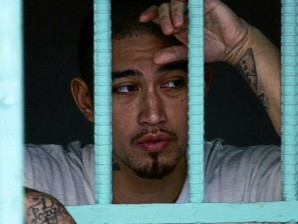MANILA, Philippines — The mother of Jason Ivler, who is on trial for killing a man in a road rage encounter, is asking the Quezon City Regional Trial Court to allow her to file a demurrer to evidence in the obstruction of justice filed against her for allegedly helping her son evade arrest three years ago.
Marlene Aguilar-Pollard, the younger sister of singer-songwriter Freddie Aguilar, has asked Quezon City RTC Branch 77 Judge Germano Francisco Legaspi to reverse a decision by Metropolitan Trial Court Branch 37 Judge Augusto Diaz that had denied her demurrer to evidence on Nov. 12, 2012 and her motion for reconsideration last March 12.
Aguilar Pollard stands accused of obstructing justice when she allegedly harbored, concealed, gave false information, and misled agents of the National Bureau of Investigation (NBI) to prevent the arrest and prosecution of her son on charges of murder as well as reckless imprudence resulting in homicide and damage to property.
NBI agents arrested Ivler hiding in the basement of his mother’s house on Hillside Drive in Blue Ridge Subdivision in a January 18, 2010 operation.
Aguilar-Pollard claimed that the orders, which were both given in open court, were “starkly hollow … vacuous in its content and trite in its form and must be struck down as void and deemed legally inexistent.”
She stated in her 21-page petition, “It was bad enough that the subject order did not even state the law on which it was based, worse is the fact that the subject order denied the demurrer to evidence absent any comment or opposition from the prosecution.”
The petitioner further added that a demurrer calls for a judge to appreciate the prosecution evidence and determine their sufficiency to warrant a conviction beyond reasonable doubt.
“When such evidence is found wanting, a dismissal of the case on the merits, tantamount to an acquittal of the accused, follows,” she said.
Aguilar-Pollard alleged that Diaz “committed not merely reversible errors of judgment but also grave abuse of discretion amounting to lack or excess of jurisdiction, and a denial of due process in refusing to weigh and evaluate the prosecution’s evidence and summarily denying petitioner’s demurrer to evidence in a criminal case filed against her.”
She noted that when Diaz denied her demurrer to evidence in open court, he had “offhandedly commented” that an evaluation of the prosecution’s evidence against her would be premature and would result in deciding the case without the defense presenting its case.
The assailed order, Aguilar-Pollard said, did not explain or discuss how the judge reached his conclusion, a Constitutional requirement for due process and fair play. Aguilar-Pollard also claimed that Diaz made a ruling “without actually reading or reviewing the arguments presented by the petitioner.”
In his order, Diaz ruled in open court on the demurrer following a manifestation and comment by assistant city prosecutor Edgar Navales that the pieces of evidence presented by the prosecution are “all evidentiary in nature and must be evaluated by the court as to their evidentiary value.”
The judge stated that “In view of the manifestation (of Navales), demurrer to evidence is regrettably denied. Let the initial presentation of the defense evidence be conducted during the next scheduled hearing of this case.”
Aguilar-Pollard further argued that under the rules of court once the prosecution terminates its presentation of evidence and rests its case, the court may dismiss the suit on the ground of lack of evidence upon the filing by the defense of the demurrer where the court is asked to evaluate if the evidence is sufficient to merit a conviction beyond reasonable doubt.
She maintained, “All that the prosecution did was to prove that Jason Aguilar-Ivler was arrested at his mother’s residence. Whether or not the mother knowingly or willfully committed any offense was never established.”
Aguilar-Pollard added, “Clearly there was no evidence to show that petitioner committed the crime (obstruction of justice). That Jason was found inside petitioner’s residence does not necessarily mean, much less give a presumption that petitioner knew that her son was there and that she willfully and knowingly concealed her son to frustrate his apprehension.”
